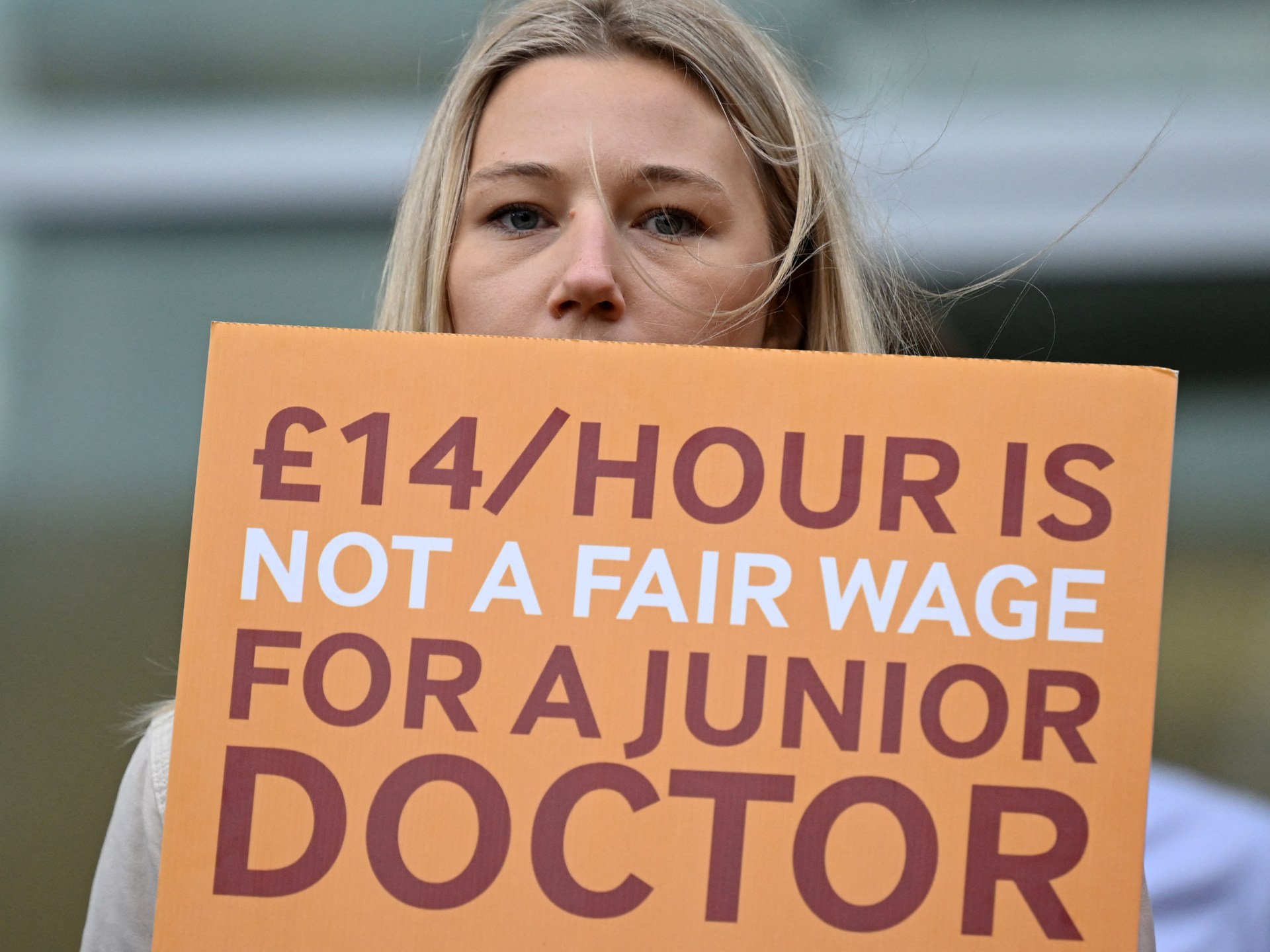USAID chief says committed to helping Sudanese refugees
Gaga refugee camp, Chad – At least 250,000 refugees have crossed into countries neighbouring Sudan since April 15, after a rivalry between army general Abdel Fattah al-Burhan and the head of the paramilitary Rapid Support Forces, Mohamed Hamdan “Hemedti” Dagalo, turned into an armed conflict.
Another 843,000 people are displaced internally, the United Nations refugee agency said, bringing the total number of people fleeing their homes over the past six weeks to more than one million.
While most of the worst fighting has taken place in the Sudanese capital, Khartoum, fierce battles also took place in the country’s western region of Darfur, mostly between Arab and Masalit communities. Waves of intercommunal violence have forced at least 60,000 refugees so far to flee into neighbouring Chad.
Aid agencies say the numbers are much higher as people keep streaming every day into the country, and thousands have not been registered so far.
Most of the refugees are in informal settlements along the border and remain at risk from the fighting if they are not moved deeper into the country before the rainy season starts in about four weeks.
The UN’s refugee agency UNHCR started to relocate about 1,000 people on Monday amid huge logistical challenges and a shortage of funds.
Resources in Chad were already stretched to assist about 600,000 refugees already in the country before the Sudan crisis.
Al Jazeera spoke to Samantha Power, the chief of the United States Agency for International Development (USAID), who has announced $100m in additional funding to Sudan and countries affected by the conflict in Sudan.
“Since humanitarian conditions are only getting worse, not better inside Sudan, we at USAID are increasing our support to our partners on the ground,” Power said, as she visited one of the camps in eastern Chad hosting refugees from Sudan.
Al Jazeera: What is the United States doing to help the displaced Sudanese people?
Samantha Power: The number one thing that the US is focused on is bringing the two parties to the negotiating table so that the fighting that is driving people into these conditions stops. That is something that Secretary of State Antony Blinken is working on along with the Saudis, the African Union and others.
In the meantime, since humanitarian conditions are only getting worse inside Sudan, we at USAID are increasing our support to our partners on the ground.
Even before this crisis and horrific violence, you had 60 million people in Sudan who were in need of humanitarian assistance. That number has now gone up by more than 50 percent. That means finding a way to funnel in more resources into Sudan to meet food and protection needs.
So many women are now suffering gender-based violence at the hands of the militia and soldiers. So more health items are needed, given the fact that hospitals have been either destroyed or taken over by soldiers.
Here in Chad, [we’re involved in] the process of moving people from impromptu settlements deeper into the country where they won’t be pursued by the very same Sudanese armed actors that drove them to flee in the first place.
We, the United States will support UNHCR building these camps for what is now 60,000 people and will support the [refugee agency] as they move these people away from the border, deeper into Chad. But we all recognise that 60,000 is only the beginning and we are already hearing reports of thousands – maybe tens of thousands of people – who are inside Sudan trying to cross the border.
The Chadian forces and authorities are welcoming them but you have Sudanese armed elements seeking to take advantage of people in the hours of their greatest need, either forcing them to pay [to cross] or blocking them outright. So obviously, that would be part of our diplomacy as well. Those forces who have unleashed this war on civilians need to take responsibility for clearing the border, so that people who want to cross, can cross.
AJ: How do you respond to criticism that the US has been too appeasing towards the two generals, hence paving the way to this conflict?
Power: I travelled to Sudan two years ago and engaged, as so many US senior officials did, with General Burhan to press for the expeditious transition to civilian rule. USAID threw its weight behind the civilian-led government with development [and] significant financial support.
It was the most we have invested in Sudan in a very long time, knowing that people needed to see tangible economic progress with civilian-led rule. When Burhan staged the coup we cut off that assistance and have imposed constant pressure on him to return to the negotiating table. Obviously, that progress was halted because there are certain individuals and elements inside Sudan who, decade after decade, put their own welfare above the welfare of the Sudanese people.
I think the focus and the blame and the accountability belong on armed elements who again put their own interests first.
AJ: Can you comment on how the Sudanese feel betrayed by the US and the West?
Power: We are ramping up support and announcing $100m in additional programming today both here and in Sudan to try to stand with the Sudanese people. That’s why we are relentless in our diplomacy and continue to be.
The only future that will work for Sudan is a civilian-led rule, and we won’t give up until the Sudanese people achieve that.



